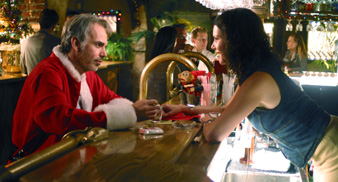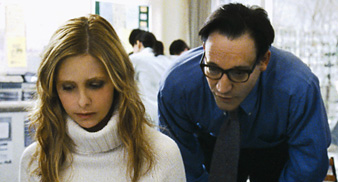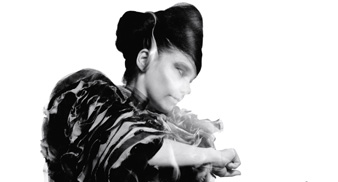Tracks that Inspired Bob Dylan
1. Bert Jansch – Nottamun Town
Taken from the album Transatlantic/Castle album Jack Orion
When Dylan made his first trip to Britain at the end of 1962, he immersed himself in the London folk scene and picked up a number of traditional tunes from other singers which he swiftly incorporated into his own repertoire. Martin Carthy was a big influence (see track four) and from Bob Davenport, he learned the tune “Nottamun Town”, which he adapted to new words as “Masters Of War”. It was also recorded by Bert Jansch, who played his first London gig at the Troubadour club on Jan 19, 1963 exactly a week after Dylan had appeared there.
2. The Mississippi Sheiks – The World Is Going Wrong
Recommended listening Stop & Listen (Yazoo) and The Best Of The Mississippi Shieks (Columbia/Legacy)
The Sheiks were a string band made up of members of the Chapman family who flourished in the early 1930s. They were a huge influence on Dylan’s 1993 acoustic album World Gone Wrong, on which both the title track and “Blood In My Eyes” were covers of their songs. In the liner note to the album, Dylan described them as ‘a little known de facto group whom in their former glory must’ve been something to behold. Rebellion against routine seems to be their strong theme. All their songs are raw to the bone and faultlessly made’.
3. Woody Guthrie – Talkin’ Dust Bowl Blues
Recommended listening, A Proper Introduction To Woody Guthriw (Proper) and Woody Guthrie: Déjà vu retro Gold Collection (Proper)
In Dylan’s Chronicles, there’s a wonderful description of the moment when he discovered the Woody Guthrie songbook. The effect was, Dylan writes, ”like some heavy anchor had just plunged into the waters of the harbour.” The early Dylan had several heroes, including James Dean and Elvis. But it was Guthrie who became his role model. The first of his own compositions he ever performed in Greenwich Village was called “Song To Woody” and as late as 1985, he was still offering aspiring young singer-songwriters this advice: ‘Disregard all the current stuff. Forget it. Listen to Robert Johnson and Woody Guthrie’.
4. Martin Carthy – Lord Franklin
Taken from the Topic album “Martin Carthy: A Collection”
On his first visit to London during the harsh winter of 1962/3, Dylan stayed with Martin Carthy at his flat in Hampstead. The weather was so freezing that Carthy recalls Dylan helping him chop up an old wardrobe to fuel the fire. The two men also visited such London folk clubs as Bunjies,
Les Cousins and the Troubadour and from Carthy, Dylan learnt several tunes.They included “Sacrborough Fair”, which influenced his “Boots Of Spanish Leather” and the traditional ballad “Lord Franklin”, which Dylan used as the basis of the melody for “Bob Dylan’s Dream”.
5. Chuck Berry – Too Much Monkey Business
Taken from the Acrobat album Rock And Roll Music
The world should not have been so surprised when Dylan went electric in 1965, for long before he fell under Woody Guthrie’s spell and became a folk singer, he had been in various high school rock’n’roll bands with names such as Elston Gunn & His Rock Boppers, playing Little Richard, Gene Vincent and Chuck Berry covers. “Subterranean Homesick Blues” was, in fact, an extraordinary three-way amalgam of Jack Kerouac, the Guthrie/Pete Seeger song “Taking It Easy” (‘mom was in the kitchen preparing to eat/sis was in the pantry looking for some yeast’) and the riffed-up rock’n’roll poetry of Berry’s “Too Much Monkey Business”.
6. Lightnin’ Hopkins -Automobile
Recommended listening, The Chronological Lightnin’ Hopklins 1949-1950 (Classics)
One of the great country bluesmen, Lightnin’ Hopkins was born in Texas in 1912. In Chronicles, Dylan recalls seeing him on a CBS television ‘folk music special’ around 1959/60, the same show on which he first saw Joan Baez. He later saw him live in Greenwich Village and was captivated by Hopkins’ sparse guitar, emotive voice and intense, narrative style. Hopkins first recorded Automobile in 1949, re-recording it as “Automobile Blues” in 1960. The song went on to form the musical template for “Leopard-Skin Pill-Box Hat”, in which Dylan slyly acknowledged the source in the line ‘you forgot to close the garage door’.
7. Hank Williams – Lost Highway
Recorded for the ‘Health & Happiness Show’. Recommended listening, The Final Sessions (Proper)
Dylan grew up listening to Hank Williams on The Grand Old Opry on the radio on a Saturday night and in Chronicles, he recalls as an 11 year old hearing the rumours that Hank had died in the back of his Cadillac on New Year’s Day, 1953 : ‘Kept my fingers crossed, hoped it wasn’t true. But it was true. It was like a great tree had fallen’. According to Chronicles, the youthful Dylan got hold of “Lost Highway” on a 78 and played it endlessly : ‘The sound of his voice went through me like an electric rod’.
8. Blind Willie McTell – Delia
Recommended listening, The Defininitive Blind Willie McTell 1927-1935 (Catfish) and Blind Willie McTell: The Classic Years 1927-1940 (JSP)
Nobody – as Dylan told us in one of the most profound songs of his later career – sang the blues like Blind Willie McTell. Born in Georgia in 1901, McTell made his first recordings in 1927 and died in 1959, so that Dylan never had the opportunity to see him perform. But he devoured McTell’s Last Session album, released on the Bluesville label the following year, and was soon singing McTell’s “Delia” on the Dinkytown folk circuit in Minneapolis. He later recorded the song along with “Broke Down Engine” from McTell’s Last Session on 1993’s World Gone Wrong.
9. Gene Vincent – Baby Blue
Taken from the Magnum Force album GENE VINCENT REBEL HEART VOL.6
Gene Vincent was one of Dylan’s favourite early rock’n’rollers and he openly imitated him in his high school group, The Shadow Blasters. He has since admitted that “It’s All Over Now, Baby Blue” was in part influenced by Vincent’s “Baby Blue”. ‘I carried that song around in my head for a long time’, he told Cameron Crowe. ‘When I was writing it, I’d remembered a Gene Vincent song that had always been one of my favourites. It was one of the songs I used to sing back in high school. Of course, I was singing about a different Baby Blue, then’.
10. Josh White – The House Of The Rising Sun
Born in South Carolina in 1915, Josh White was a big influence on the youthful Dylan, who saw him playing often at the Village Vanguard in New York. Dylan’s early repertoire included a version of White’s “Dink’s Song”, he wrote “Quit Your Low Down Ways” under the influence of the blues singer’s “Sissy Man” and “In My Time Of Dyin’” on his first album was another White favourite. Dylan’s arrangement of “The House Of The Risin’ Sun” on the same album was mostly copied from Dave Van Ronk, but he was equally familiar with White’s earlier version of the song.
11. Louise Armstrong & The Hot Five – St. James Infirmary
Recommended listening, The Best of The Hot Five & Hot Seven Recordings (Columbia/Legacy)
Dylan first visited New Orleans in 1964 and expressed his delight at being in the city of Kid Ory, King Oliver, Jelly Roll Morton and Louis Armstrong, who recorded his classic version of the blues-jazz standard “St James Infirmary” in 1928. The St. James was a real place that opened as a hotel in New Orleans in 1859, but during the Civil War was converted by occupying Union troops into a military hospital, believed to be the infirmary of the song. Dylan used the song’s melody in his “Blind Willie McTell”, and at the end of the lyric tells us he’s staying in the St. James Hotel.
12. Jimmie Rodgers – My Blue Eyed Jane
Recommended listening, The Singing Brakeman (Country Stars)
In 1996, Dylan put together a tribute album to one of his most enduring musical heroes, Jimmie Rodgers. Released on Dylan’s own Egyptian Records label, his liner note described Rodgers (also known as the ‘Singing Brakeman’ or the ‘Blue Yodeller’) as ‘a blazing star whose sound was and remains the raw essence of individuality in a sea of conformity, par excellence with no equal’. Among those Dylan asked to contribute to The Songs Of Jimmie Rodgers: A Tribute were Bono, Van Morrison, Jerry Garcia and Willie Nelson. His own contribution was a version of “My Blue Eyed Jane”, featuring Bucky Baxter on pedal steel.
13. Blind Lemon Jefferson – See That My Grave Is Kept Clean
Recommended listening, Blind Lemon Jefferson (Ace)
Blind Lemon Jefferson recorded the traditional “See That My Grave Is Kept Clean” in October 1927, two years before he froze to death on the streets of Chicago. When Jefferson learned the song it was a folk spiritual called “Two White Horses In A Line”, also known as “One Kind Favour”. He turned into something entirely his own and although Dylan followed Jefferson’s arrangement fairly closely on his debut album, the two versions are also quite different. As Robert Shelton put it: “Blind Lemon’s recording is sprightly, sweet and benevolent, while Dylan’s is stark and morose”.
14. Nic Jones – Canadee-I-O
Taken from the Topic album PENGUIN EGGS
Dylan sang “Canadee-I-O” on 1992’s Good As I Been To You and credited the song as ‘traditional, arranged Dylan’. In fact, it’s fairly clear the arrangement came from Nic Jones’s version of the song on his album, Penguin Eggs, which in 1980 was voted Melody Maker’s Folk Album Of The Year. Jones was born in Kent in 1947 and was a respected guitarist and fiddle player on the English folk scene until his career was interrupted by a car accident in 1982 that left him in a coma for six weeks. Despite recovering, his injuries left him not well enough to resume his career.
15. Robert Johnson – Come On In My Kitchen
Recommended listening, The Complete Recordings (Columbia)
‘He seemed like a guy who could’ve sprung from the head of Zeus in full armour’, Dylan writes of Robert Johnson in Chronicles, describing songs such as “Come On In My Kitchen” as ”panoramic story-fires of mankind blasting off the surface of this spinning piece of plastic.” He went on to confess Johnson’s influence on his own writing. ‘In about 1964-5, I probably used five or six of Johnson’s blues song forms, unconsciously. If I hadn’t heard him when I did there probably would have been hundreds of lines of mine that I wouldn’t have felt free enough or upraised enough to write’.
16. The Dubliners – The Patriot Game
Taken from the Sanctuary album IRELAND’S FINEST (Sanctuary)
Dylan learned Dominic Behan’s Irish rebel song “The Patriot Game” on his first trip to London in the winter of 1962/63 and, in the time-honoured folk tradition, adapted it for “With God On Our Side”. Behan promptly castigated Dylan for plagiarism, which was a little rich given that he had
in turn borrowed the tune from an old song called “The Merry Month Of May”. Dylan always had a strong affection for Irish music and was close friends in his early Greenwich Village days with the Clancy Brothers, whose international success was a great influence back home on The Dubliners.
Tracks Influenced by Bob Dylan
1. Douglas September – Lady & I
Taken from the Gold Circle album TEN BULLS
Haling from Cape Breton, Nova Scotia, poet, painter, storyteller and singer-songwriter Douglas September cites among his heroes Tom Waits, Captain Beefheart, and Rimbaud. But the name of Bob Dylan heads the list. With its lyrical reference to “Desolation Row” and extraordinarily
Dylanesque voice, “Lady & I” first appeared on his 1997 self-released debut, but was re-recorded for his first commercially available album, 1998’s Ten Bulls in this superior version with Bill Frisell on guitar. September’s last album, 2001’s Oil Tan Bow, included versions of Dylan’s
“Girl From The North Country” and Woody Guthrie’s “I Ain’t Got No Home”.
2. Josh Ritter – You Don’t Make It Easy Babe
Taken from the Signature Sounds album HELLO STARLING
”I know the sound of the handcuffs as they scrape across the floor but that know thiong you’ve got I don’t know what it’s for” sings Josh Ritter in wry, Dylanesque fashion on this song from his 2004-released second album, Hello Starling. Born in Idaho in the late 70s, Ritter was inspired to buy his first guitar from the local K-MART after hearing Dylan and Johnny Cash’s duet on “Girl From The North Country.” Joan Baez, who retains her sharp ear for a great song, recently recorded his composition “Wings” and, in an echo of how she once took up another promising but little-known songwriter some 40 years ago, invited him to play support at some of her shows.
3. Warren Zevon – Knocking On Heaven’s Door
Taken from the Artemis/Ryko album THE WIND
Warren Zevon recorded “Knocking On Heaven’s Door” for his final album in highly charged circumstances that render it an over-poweringly emotional reading. Zevon knew at the time that he was dying from an inoperable cancer and it would take a heart of stone not to be deeply moved as he appends his own ad-libbed line to the end of the song, “Open up, open up, open up the gates for me”. Dylan was in turn a big fan of Zevon, recording his “Mutineer” for the posthumous tribute album , Enjoy Every Sandwich. He also played harmonica on Zevon’s 1987 album “Sentimental Hygiene” and took the title of Time Out Of Mind from Zevon’s song, “Accidentally Like A Martyr”.
4. Mary Lee’s Corvette – Shelter From The Storm
Taken from the Bar None album BLOOD ON THE TRACKS
‘They were putting on a series of gigs in New York featuring people covering landmark albums in their entirety, but everybody was scared of Blood On The Tracks’, recalls Mary Lee Kortes. ‘I love the album, so I naively said I’d do it’. Her interpretation was so well received the
performance was subsequently issued on CD. Dylan must have approved, too. Some time after Mary Lee’s album hit the stores, she was invited to open for him at the Hammerstein Ballroom. ‘He came on stage during my soundcheck and when I looked over he tipped his hat to me’, she recalls.
5. Tom Ovans – Sixth Avenue
Taken from the Evangeline album STILL IN THIS WORLD
After leaving home in Boston in his late teens, Tom Ovans arrived in Greenwich Village in the early ’70s about a decade after Dylan. ‘I hung around Gerdes Folk City a lot and I’d see guys like Ochs and Hardin. In those days, there was still a remnant of the folk community’, he recalls.
Now resident in Austin, Texas, “Sixth Avenue” comes from his sixth album, released in 2001. With its rich concordance of lyrical references to Dylan songs, it’s a wonderful tribute to the man whose influence first inspired him to hit the road and make his life in music.
6. The Coal Porters – Idiot Wind
Taken from the Prima album HOW DARK THIS EARTH WILL SHINE
With LA’s legendary Long Ryders and now The Coal Porters, Sid Griffin has always had an ear for an unusual cover. Back in 1987 the Ryders recorded an extraordinary version of Dylan’s “Masters Of War” with a keening fiddle that replaced the burning anger of the original with apocalyptic menace. On The Coal Porters’ current album, he transforms “Idiot Wind” from a raging diatribe into a bluegrass lament. And it’s not only Dylan who gets such radical treatment. One wonders what John Peel would’ve made of a version of his beloved “Teenage Kicks” complete with banjo and Appalachian folk harmonies…
7. Richie Havens – It’s All Over Now, Baby Blue
Taken from the Evangeline album “Stonehenge”
Richie Havens first met Dylan in Greenwich Village in the early ’60s when both were regulars at clubs such as the Café Wha? and Gerdes Folk City. Always primarily an interpreter of other people’s material rather than a songwriter, Havens has probably recorded as many Dylan covers as anyone over the years. His typically warm and mellow version of “It’s All Over Now, “Baby Blue” appeared in 1970, the year after he opened the Woodstock festival, and the song remains in his live repertoire to this day. ‘Those songs changed my life,” he says. “They were just so powerful I decided, ‘I’ve got to do this'”.
8. John Prine – Sam Stone
Taken from the Ulftone album SOUVENIR
Originally released on Prine’s eponymous 1972 debut album, Sam Stone is often described as ‘the best Dylan song Dylan never wrote’. Certainly the man himself was impressed enough to turn up unannounced at the Bottom Line in Greenwich Village one night shortly after its release and back Prine on harmonica on the song. The endorsement was enough to catapult Prine up there alongside Loudon Wainwright among the more convincing pretenders to Bob’s crown. His songs have since been covered by every one from Bonnie Raitt to Dylan himself, who in the early ’90s sang Prine’s “People Putting People Down” in concert.
9. Billy Bragg – Deportees
Originally released on the 12-inch single ‘Greetings To The New Brunette’ ‘It did my head in’, says Billy Bragg of first hearing Dylan in the store in Barking where he had a Saturday job at the age of 14 in 1972. It was the start of a lifelong passion and, inevitably, it soon led him back to the source of Dylan’s inspiration, Woody Guthrie. Bragg recorded Guthrie’s
“Deportees” in 1986 with Hank Wangford. The song only ever appeared as a B-side, although Bragg and Wangford also famously sang it at a Neil Kinnock rally in Islington during the 1987 general election campaign. The track appears here on CD for the first time.
10. Marc Carroll – Gates Of Eden
Taken from the Evangeline album ALL WRONGS REVERSED
Irish singer-songwriter Marc Carroll believes in honouring his heroes. He’s written a track called “Mr Wilson” based around Beach Boys’ songs titles, recorded “For What It’s Worth” for a forthcoming Buffalo Springfield tribute and Uncut readers will recall his “London Calling” on our Clash tribute CD last year. But his serious fixation is Dylan. His second album,
2003’s All Wrongs Reversed, included covers of both “Senor (Tales Of Yankee Power)” and “Gates Of Eden” – the latter earning the accolade of a recommendation on Dylan’s official website. His version of “The Times They Are A’Changin’” also appeared as the B-side to a recent single.
11. Graham Lindsey – Dead Man’s Waltz
Taken from the Catamount album, Famous Anonymous Wilderness
And still Dylan’s continues to exert a powerful hold on a whole new generation of singer-songwriters who weren’t even born when he made Blood On The Tracks and Desire , let alone Freewheelin’ and Another Side. Wisconsin’s Graham Lindsey last year released a wonderful debut collection of contemporary folk songs, seemingly plucking ghosts from the air with all the rugged spirit and fearless energy of a young Dylan. The debt is obvious on the twangy, heart-wrenching desperation blues of “Dead Man’s Waltz”, as Lindsey’s rasping vocal is backed by some superb finger picking and swooning pedal steel.
12. Steve Goodman – City Of New Orleans
Taken from the Red Pajamas album LIVE WIRE
Dylan released nothing under his own name in 1972, but in September that year he turned up at a New York studio to play piano on Steve Goodman’s Somebody Else’s Trouble, masquerading in the album’s credits as ‘Robert Milkwood Thomas’. Goodman had been discovered by Kris Kristofferson and with Dylan at the time having abdicated as leader of the counter-culture, was one of the many who in the early-’70s was briefly hailed as the ‘New Bob’. His best-known song “City Of New Orleans” was an American hit for Arlo Guthrie. He suffered from leukaemia and died following a bone marrow transplant operation in 1984.
13. Robyn Hitchcock with Gillian Welch & Dave Rawlings – Tryin’ To Get To Heaven Before They Close The Door
We always knew Robyn Hitchcock worshiped at the shrine of Bob. But the extent of his devotion only became truly apparent on 2002’s Robyn Sings, on which he covered 15 Dylan songs from “Like A Rolling Stone” and “Visions of Johanna” to “Dignity” and “Not Dark Yet” via “Desolation Row” and “Tangled Up In Blue”. The former Soft Boys frontman now follows with another cover from Time Out Of Mind on his current album in the shape of this lovely version
of “Tryin’ To Get To Heaven”, recorded in collaboration with Gillian Welch and Dave Rawlings.
14. Dream Syndicate – See That My Grave Is Kept Clean
Taken from the Ryko album “The Complete Live at Raji’s”
Dylan recorded Blind Lemon Jefferson’s “See That My Grave Is Kept Clean” on his 1962 debut album. More than a quarter of a century later, Steve Wynn’s splendid take on the song drew on both sources. He recorded the song on 1988’s Ghost Stories, which proved to be Dream Syndicate’s final studio album, although this live version, recorded in Hollywood in January of that year, actually preceded the studio recording. It was released for the first time in 2004 as an additional track on the expanded two disc release of the band’s 1989 Elliott Mazer-produced swansong, Live At Raji’s.
15. Buddy Miller – With God On Our Side
Taken from the New West album UNIVERSAL UNITED HOUSE OF PRAYER
Long-time guitarist of choice among Nashville’s non-mainstream community and stalwart Emmylou Harris sideman, Buddy Miller has also made a prolific series of solo albums. The centrepiece of his current release is this epic nine minute version of “With God On Our Side”. The keening fiddle and marching drums cleverly emphasise the Irish roots of the tune which Dylan borrowed from Dominic Behan’s Irish rebel song, “The Patriot Game”. Miller’s vocal transmutes the anger of the original to a profound sorrowfulness and becomes a powerful contemporary commentary on an America catastrophically divided by a neo-con jihad and at odds with the rest of the world over Bush’s belligerent foreign policy.









